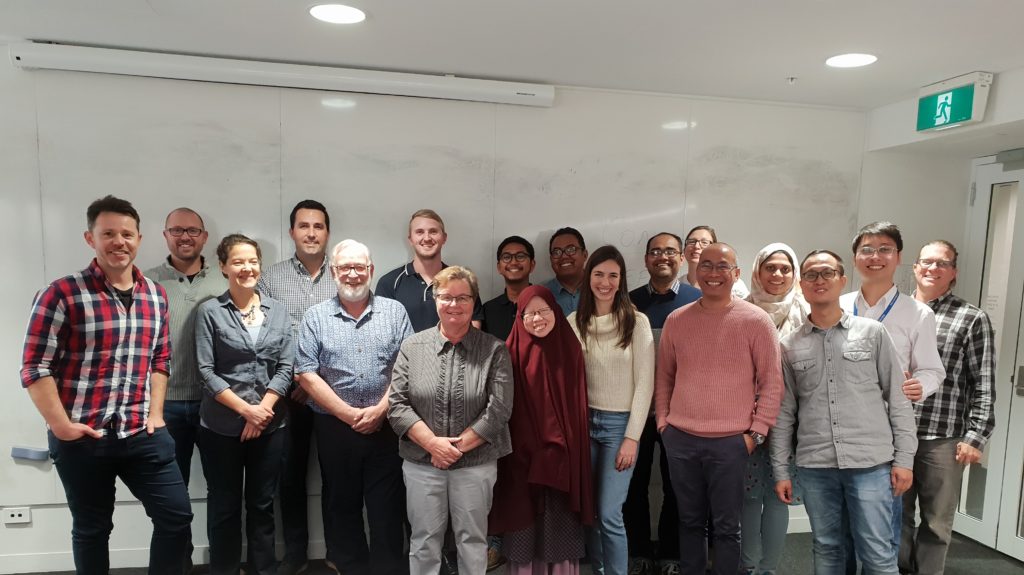

RAID partners with Crawford Fund for Adelaide workshop
November 5, 2018
The Crawford Fund partnered with RAID to present another intensive workshop on agricultural research leadership and management in Adelaide from 9 to 11 October 2018. The workshop was presented by our Director of Capacity Building, Shaun Coffey. Shaun is currently in Penang presenting our third Master Class in Agricultural Research Leadership and Management, being held from 4 to 9 November 2018.
More good news – plans are already in train for the next workshop, to be held in Hobart and the tentative dates are 26 to 28 Feb 2019. Stay tuned for details.
The following blog was written by participant Livia Padilha, a PhD student at the Centre for Global Food and Resources at the University of Adelaide.
Learning the ropes of leadership and management in international R4D
Blog post prepared by Livia Padilha
Recently, I attended a workshop on “Agricultural Research Leadership and Management” with some of my fellow PhD students from Centre for Global Food and Resources (GFAR) . The workshop was organised by Researchers in Agriculture for International Development (RAID) and The Crawford Fund.
The two and a half day workshop was aimed at presenting participants tools related to managing and leading in the context of agricultural research for international development. One of the most interesting things about this workshop was the diversity of the workshop participants. There were PhD students, early career researchers and experienced professionals from varied educational backgrounds and experience.
Prof. Shaun Coffey and Lynne O’Brien from The Crawford Fund were the presenters and led the workshop. Both introduced key concepts and discussed with the group, themes such as challenges in leading research activities in different countries, dealing with human resource issues in fieldwork, introducing concepts of organisational leadership, and managing discussions in cross-cultural contexts. During the first day, we shared our experiences with management/leadership and Shaun focused on questions regarding different cultural environments we work in. As most of the participants had experience of working in international projects, they had a lot to contribute to the group discussion.
In the evening of the first day, RAID organised a networking event and a panel discussion. Participants and other interested had a chance to listen to a panel about ‘Challenges of managing and leading international research for development projects’ from Prof. Sarah Wheeler, Associate Director of Research at GFAR, Dr. Peter Hayman Principal Scientist, South Australian Research and Development Institute (SARDI) and Mr. Peter Ninnes, International Research for Development Consultant). Prof. Wheeler talked about her experience as a female researcher working in international projects and her views on the need of maintaining gender equity in agricultural research for development. Dr. Hayman spoke about his experiences of working and managing teams with people from varied backgrounds and Mr. Ninnes spoke about his experiences of working in different African countries.
On the second day of the workshop, Lynne conducted interactive exercises, where we could experience differences in a situation with good vs. bad leadership, how to manage difficult conversations and guidance on providing constructive feedback to people you manage in a team. It was a very productive day where we also explored self-awareness regarding our personal styles and how certain characteristics can influence our managerial and leadership skills. We discussed what are the strengths and weakness from each style and which one to pay more attention to, in order to improve in that sphere.
The last day was focused on projects, or as we may also call, a ‘currency’ researchers work with. One of the main practical exercises given was how to develop a project and its delivery, but especially how to translate projects objectives into KPIs (Key Performance Indicators). The group, divided into two subgroups, was asked to build a research team, considering all the information we had learned, this activity involved defining roles, setting goals and measure our project success.
Overall, the workshop and the panel session provided us with new skills to better ‘navigate’ our professional environment. In addition, it was a valuable chance to get to know researchers from other institutions and outside academia, to share our thoughts and current activities with them.






